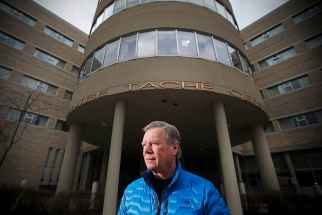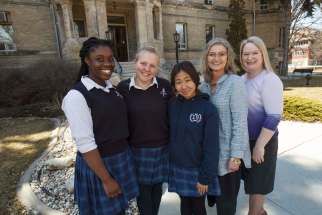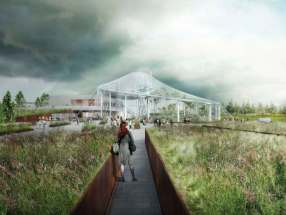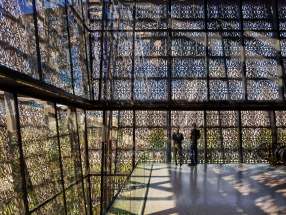St. Mary’s Academy marks 150 years Anniversary celebrates humble beginnings
Read this article for free:
or
Already have an account? Log in here »
To continue reading, please subscribe:
Monthly Digital Subscription
$0 for the first 4 weeks*
- Enjoy unlimited reading on winnipegfreepress.com
- Read the E-Edition, our digital replica newspaper
- Access News Break, our award-winning app
- Play interactive puzzles
*No charge for 4 weeks then price increases to the regular rate of $19.00 plus GST every four weeks. Offer available to new and qualified returning subscribers only. Cancel any time.
Monthly Digital Subscription
$4.75/week*
- Enjoy unlimited reading on winnipegfreepress.com
- Read the E-Edition, our digital replica newspaper
- Access News Break, our award-winning app
- Play interactive puzzles
*Billed as $19 plus GST every four weeks. Cancel any time.
To continue reading, please subscribe:
Add Free Press access to your Brandon Sun subscription for only an additional
$1 for the first 4 weeks*
*Your next subscription payment will increase by $1.00 and you will be charged $16.99 plus GST for four weeks. After four weeks, your payment will increase to $23.99 plus GST every four weeks.
Read unlimited articles for free today:
or
Already have an account? Log in here »
Hey there, time traveller!
This article was published 29/04/2019 (2419 days ago), so information in it may no longer be current.
Headed toward journalism school after graduation, Grade 12 student Malisa Thoudsanikone knows she has gained more than a solid footing for university from her six years at Winnipeg’s oldest private Roman Catholic school.
“I was exposed to an education with beautiful and gifted and powerful women who really guided me to be a better individual and better student,” explains the editor of St. Mary’s Academy student newspaper, who aspires to run the New York Times.
On Wednesday, St. Mary’s Academy marks 150 years of Catholic education with an all-day celebration for students, staff and members of the Grey Nuns and the Sisters of the Holy Names of Mary and Jesus, the two religious orders involved in the founding of the school.
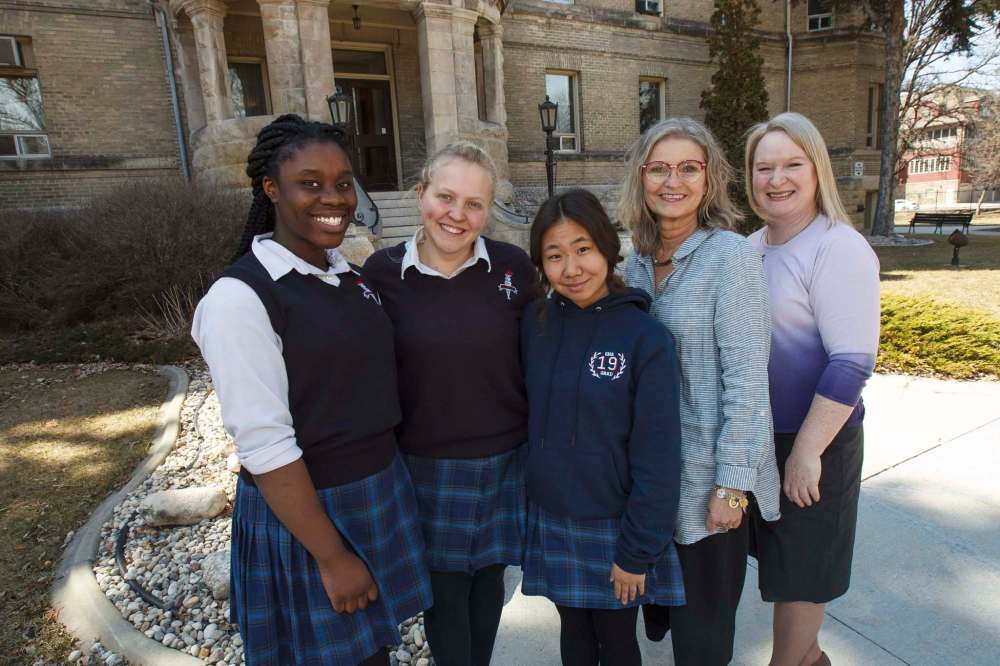
With its humble beginnings as a two-room school in a house on what is now Pioneer Avenue, St. Mary’s has left an indelible mark on the city. Over its 150 years, it has sent more than 62,000 graduates out into the world, and left Winnipeg with a trio of streets named after the school: Academy Road, Notre Dame Avenue and St. Mary Avenue.
The downtown avenue was named after the cathedral, which began as the school’s chapel in 1870, a year after the school was founded at the urging of Archbishop Alexandre-Antonin Taché.
“We were here before Manitoba was a province and (before) Winnipeg was a city and the school (witnessed) the Riel Rebellion,” says former principal Sr. Susan Wikeem, who retired in 2014, and was the last Catholic sister to lead the academy.
“It was just down the street on Main Street when (Louis) Riel seized Fort Garry. The sisters were very aware of what was happening.”
Today’s students are also aware of that long history of Winnipeg’s oldest private school every time they step into the stately Wellington Crescent building, its oldest wing completed in 1903. The second-floor hallways are lined with framed black-and-white photos of the first campus and the nuns who taught there, as well as photos of cap-and-gowned graduates over the decades.
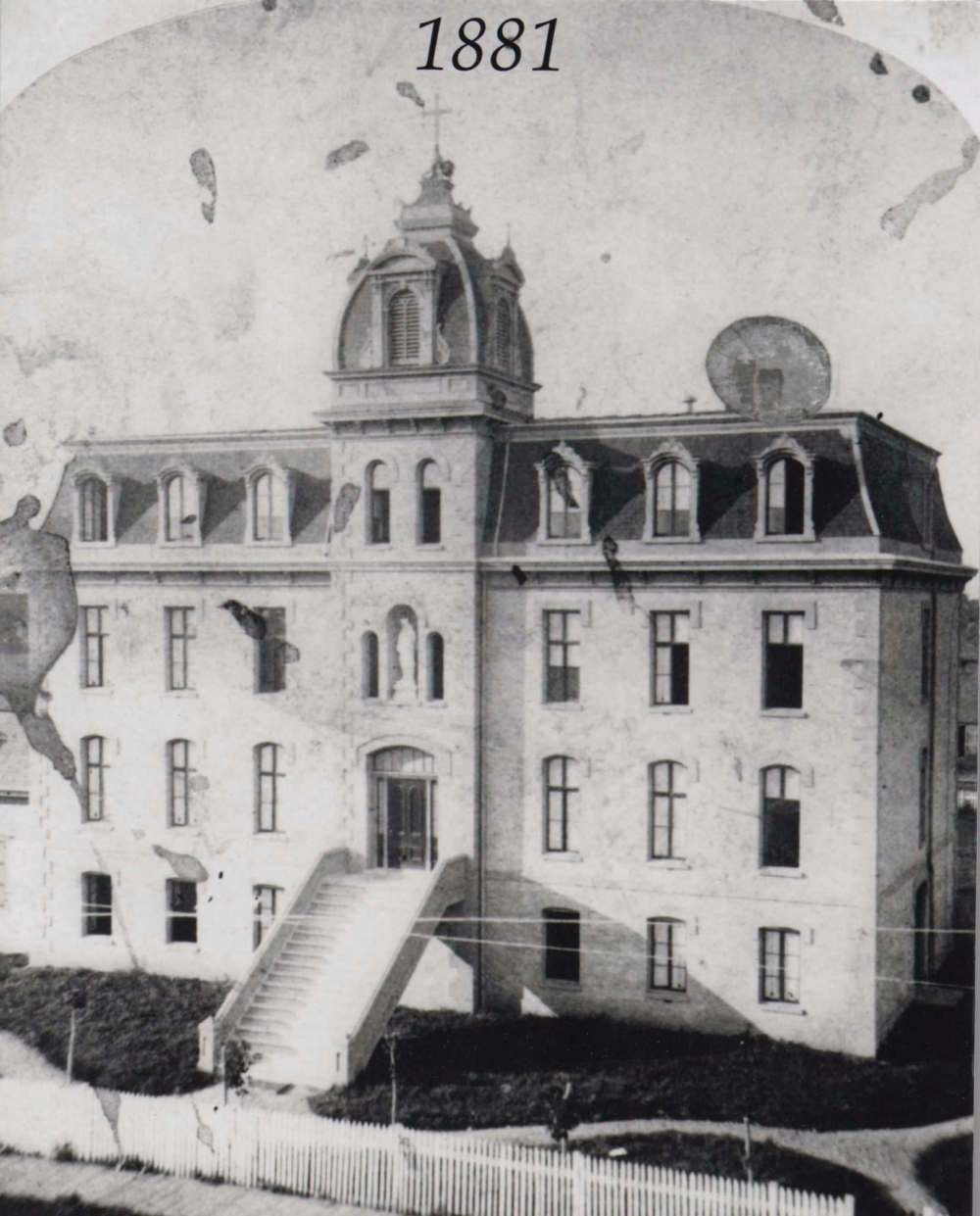
“Being able to walk down the hallway and seeing my mom is just amazing,” says Grade 11 student Nina Hutsulak, whose mother graduated in 1983.
“You can see the whole history behind the school and the whole history of the school,” Grade 11 student Ibukun Okunnu adds.
“There’s something that makes St. Mary’s different from any other public school.”
That difference is a faith-based education that goes beyond religious instruction to include development of the whole person, and embodies the principles of the Sisters of the Holy Names of Mary and Jesus, who took over teaching duties from the Grey Nuns in 1874, explains Sr. Michelle Garlinski, the academy’s director of charism and mission.
With the focus on faith, learning, leadership and serving others, Garlinski says the sisters’ legacy continues by sending students out on service assignments, raising funds for community projects and closing all public prayers with the same words: “We make this prayer in the holy names of Mary and Jesus.”
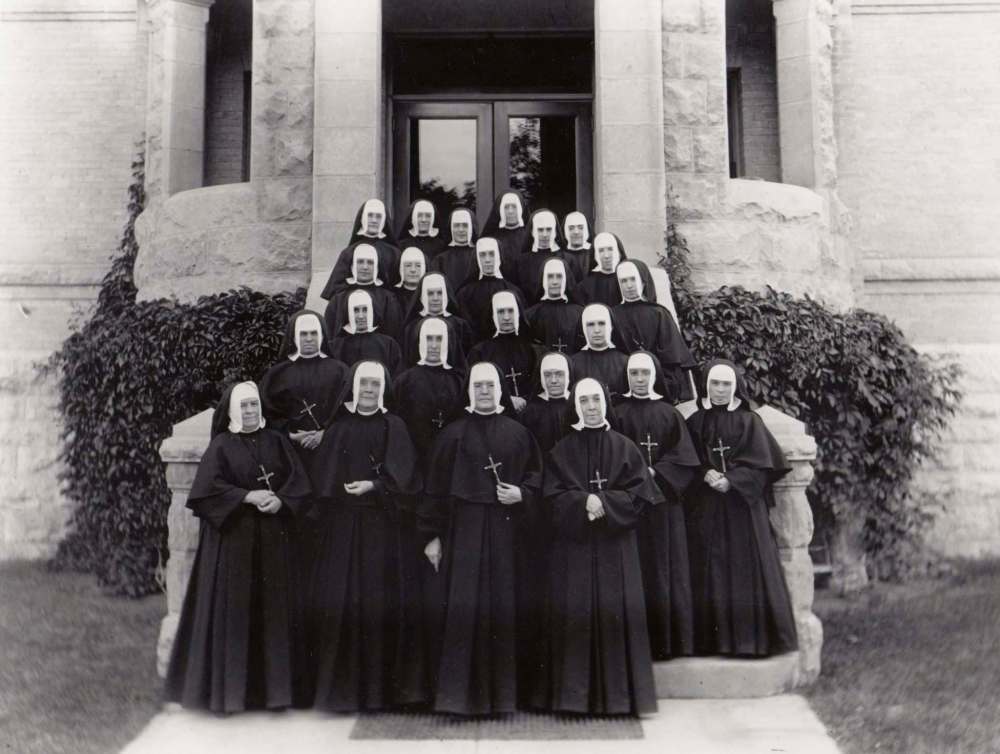
“Our community was founded because she responded to the needs of the day,” Garlinski explains of Mother Marie-Rose, born Eulalie Durocher, who started the community in 1834 in Longueiul, Que.
“We have to continually ask ourselves what are the needs (now) and who is on the margins.”
Principal Connie Yunyk has some practical ideas about current needs for the school, which has an enrolment this year of 565 girls in Grades 7 to 12 and runs on a budget of $8 million. She dreams of a second gym to accommodate the school’s athletic program, and welcomes more donations to the school’s bursary fund, which helped 85 students last year cover their $7,555 tuition fees.
She says the school is stronger when it can open its doors to a more diverse population which may not be able to afford private school fees. In the past, the sisters always welcomed students from across the religious spectrum, and those with no affiliation at all, says Yunyk, on the faculty for 21 years, and principal for the past five.
“We’ve never been 100 per cent (Catholic). We’re a Catholic school for young women,” the 1977 St. Mary’s graduate says.

“It’s a faith-based environment.”
Wikeem hopes and prays that faith-based environment continues even as the school adapts and evolves over the next decades. During her time as administrator, she witnessed the school change from a religious-run organization to an incorporated school run by a lay president and a board of directors.
She says that transition also means trusting the teachers and administrators to carry on the school’s long history of religious instruction and faith formation.
That religious culture remains important to current administration as they navigate the day-to-day challenges of meeting the needs of students and staff, explains senior school principal Michelle Klus, who taught in the public system for 25 years before joining the academy.
“I just hope we stay true to the vision of the sisters, which is providing a place for all girls to learn and to grow in mind, body and spirit, and to thrive,” she says.
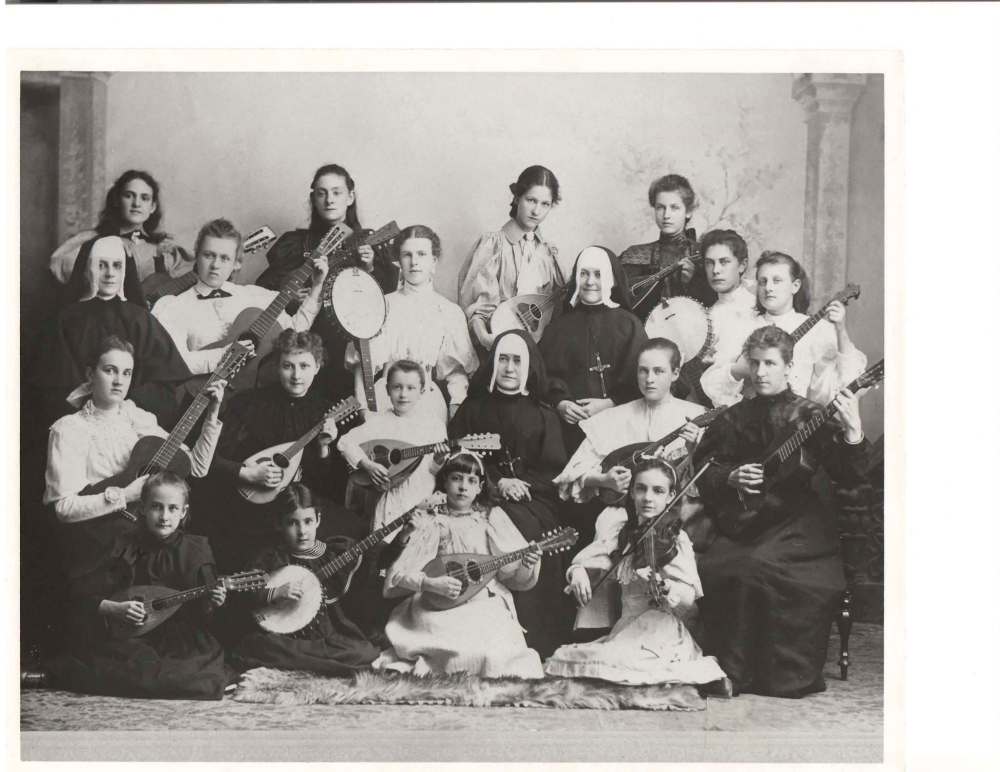
But most of all, St. Mary’s Academy wants their girls to thrive after they leave the campus, both in their careers and as they build community wherever they find themselves, Wikeem says.
“I used to tell the girls often that I wanted them to be very successful professionally and to be lifelong learners but also give back to the community. They need to make the world and the community a better place,” Wikeem said.
“We don’t want them to do charity, we want to work for justice.”
Students and staff are marking the anniversary with private events on May 1, but Winnipeggers in the Crescentwood area can watch for the ceremonial jet flyover at 10:25 a.m.
Anniversary events continue with an awards brunch on May 11, a community picnic on Aug. 28, a gala dinner, on Sept. 27, homecoming on Sept. 28, and a 150th birthday mass at St. Boniface Cathedral on Sept. 28. The celebrations close with a high tea on Dec. 8.
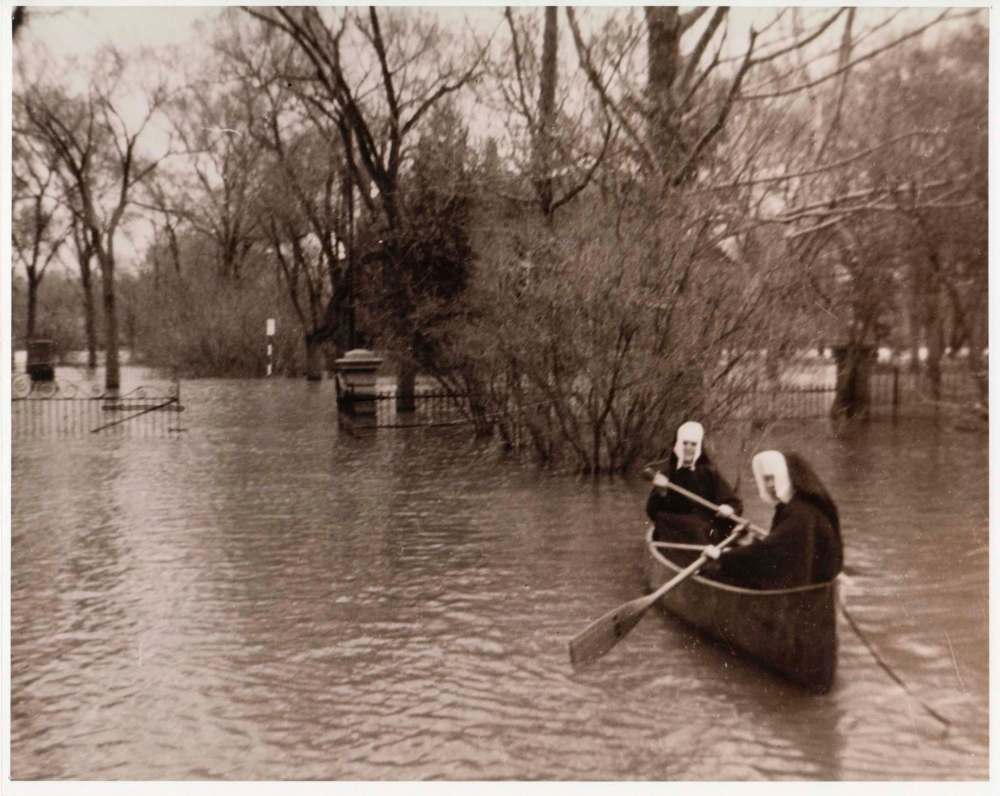
Check out details and ticket information at smamb.ca/about/150th-birthday.
faith@freepress.mb.ca
A brief history
May 1, 1869: Grey Nuns open the two-room Maison Ste. Marie in a house near the junction of the Red and Assiniboine Rivers, allowing children living west of the Red to attend school without crossing the river. Instruction is in both French and English.
1870: A chapel is added to the school, the precursor to St. Mary’s Cathedral.
Aug. 22, 1874: Four nuns from the Sisters of the Holy Names of Mary and Jesus arrive from Quebec to run the school, now renamed St. Mary’s Academy, after the Grey Nuns return to working in health care.
Total enrolment is 126 students, including 50 boys. The school becomes a girls’ only school in 1875.
1876-1892: Increasing enrolments lead to three expansions on the original site, adding an Annex in 1876 and The Brick Academy in 1881, and another wing in 1892. Student population is 226 in 1881.
1890: Manitoba Schools Act is passed, creating a new non-sectarian school system, and cutting funding to denominational schools like St. Mary’s Academy. The school begins charging a monthly tuition of $3.75 in 1901.
1902: St. Mary’s Academy starts construction on a new campus located on almost 15 acres at 550 Wellington Cres. The new four-storey U-shaped limestone building costs $81,000.
1904: A commercial course is developed to give students office and business skills, and later university-level courses are added through St. Mary’s College, affiliated with the University of Manitoba. The college closes in 1965 and the commercial program six years later.
1909: Four-storey wing added at cost of $99,300.
1915: Boys are again accepted as students, but only in the primary grades. The academy becomes an all-girls school again in the 1950s.
1964: $1.1-million expansion adds a 624-seat theatre, library, gym, cafeteria and art studio.
1979: The academy is incorporated by the province and sets up its first board of directors. Free Press publisher Bob Cox serves as the current chairman of the board.
1999: The last of the Sisters of the Holy Names of Mary and Jesus move out of the fourth floor living quarters.
2013: $12.2-million renovation adds two classrooms, a science centre, fitness room, arts studio, multi-purpose room and air conditioning, expanding the campus to its current almost 140,000 square feet.
2014: Sr. Susan Wikeem retires as head of the school, marking the end of the administration by the religious order. The Sisters of the Holy Names of Mary and Jesus retain ownership and the right to appoint the principal and board members.
May 1, 2019: St. Mary’s Academy marks 150 years.
Source: smamb.ca
The Free Press is committed to covering faith in Manitoba. If you appreciate that coverage, help us do more! Your contribution of $10, $25 or more will allow us to deepen our reporting about faith in the province. Thanks! BECOME A FAITH JOURNALISM SUPPORTER

Brenda Suderman has been a columnist in the Saturday paper since 2000, first writing about family entertainment, and about faith and religion since 2006.
Our newsroom depends on a growing audience of readers to power our journalism. If you are not a paid reader, please consider becoming a subscriber.
Our newsroom depends on its audience of readers to power our journalism. Thank you for your support.
History
Updated on Monday, April 29, 2019 11:40 AM CDT: additional formatting, adds hyperlink, fixes cutline
The Free Press acknowledges the financial support it receives from members of the city’s faith community, which makes our coverage of religion possible.


